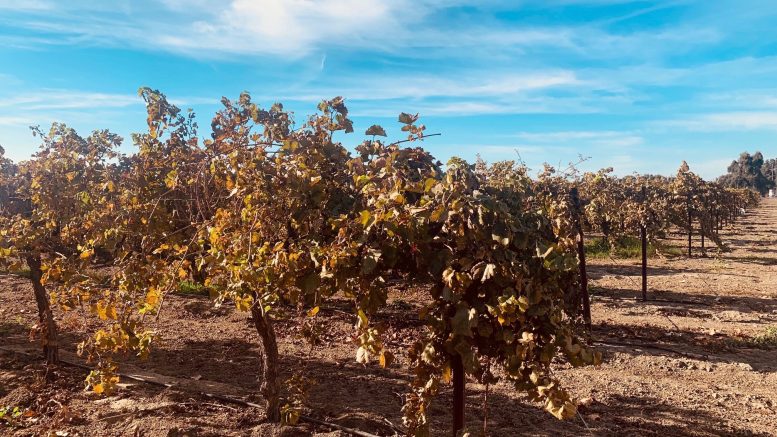By Dan Bacher
Representative Josh Harder (CA-9) is leading a group of his Delta region colleagues to urge the U.S. Army Corps of Engineers to deny a permit for the now-infamous Delta Tunnel – what Harder calls “the zombie project” that just keeps coming back.
“The State recently released an Environmental Impact Report (EIR) confirming that the project will threaten endangered fish populations, destroy farmland, and harm water quality,” the assemblyman’s office said in a statement. “Harder is calling attention to the deeply concerning long-term impacts that the Delta Tunnel project would have on the Delta itself, the local agriculture industry, and the environment.”
Harder soon elaborated on the point himself.
“The Delta Tunnel water grab would be a disaster for our region,” he observed. “We’ve been saying it for years and Sacramento’s own report shows the damage it would do, but they won’t listen and they’re steamrolling ahead. Delta communities are united in opposition to this boondoggle project because water is the lifeblood of our way of life. The Army Corps needs to do what’s right, look at the real dangers this project will cause, and deny a permit.”
Two months ago, Gov. Gavin Newsom appeared on the HBO show ‘Real Time with Bill Maher and, in the course of his interview, defended the need for the Delta Tunnel in front of a national audience. Newsom referred to it by the State’s preferred name, the Delta Conveyance Project, as he asserted it was necessary for California’s long-term water security.
In February, Harder and his Delta region colleagues urged the US Bureau of Reclamation to deny Sacramento’s request for federal participation in the Delta Tunnel project.
“In December, Harder led his colleagues in demanding the California Natural Resources Agency halt all Delta Tunnel activity following the release of its own troubling Environmental Impact Report (EIR). The report acknowledges what Harder and other Delta Tunnel opponents have known for years: the project would be a disaster for waterways, farmers, and communities along the Delta. Harder hosted multiple town halls after the Army Corps of Engineers refused to host their own in-person town hall to discuss the Delta Tunnel project,” Harder’s Office wrote.
Harder was joined by four other Delta region representatives: Reps. John Garamendi (CA-8), Mike Thompson (CA-4), Mark DeSaulnier (CA-10), and Doris Matsui (CA-7) in their letter to the Army Corps of Engineers.
Read their full letter to the Assistant Secretary of the Army for Civil Works HERE or below:
Dear Secretary Connor:
As Representatives of the Sacramento-San Joaquin Delta (Delta), we are troubled by the environmental consequences that would result from the construction and operation of the Delta Conveyance Project, commonly referred to as the Delta Tunnel, if issued a permit by the Corps under the Clean Water Act. The Project would permanently alter the Delta, disrupting local agriculture and causing environmental damage from adverse effects on water quality to increased salinity and the degradation of critical aquatic habitats. The construction phase alone, spanning over 13 years, will be highly disruptive. The long-term operational impacts of the Project, which are not analyzed in the draft Environmental Impact Statement (EIS), are also of deep concern to Delta residents. We urge you to take all possible steps to ensure a comprehensive and thorough review of the full environmental consequences of the Delta Tunnel, as mandated by the National Environmental Policy Act.
We want to highlight concerns raised by the U.S. Environmental Protection Agency (EPA). EPA’s Region IX has communicated during the environmental review process that the EIS associated with the Delta Tunnel may necessitate elevation to the EPA’s Office of Water. EPA’s most recent letter on the draft EIS (see attached) underscores the Delta’s status as a resource of national importance and the potential for the Delta Tunnel to cause significant adverse impacts. EPA raises several significant concerns, which we share, regarding compliance with the Section 404(b)(1) guidelines and urges a full “analysis and disclosure of the project’s secondary effects, including, but not limited to: changes in the salinity gradient and the location and volume of the low salinity zone in all seasons; adverse effects on water quality including the amplification of water quality impairments; disruption of migratory corridors for salmonids and sturgeon; degradation of aquatic life beneficial uses; disruption and loss of ecosystem processes; reductions in cold water supply for migratory fishes in the upper watershed; and changes to river hydrology.”
As you know, the Delta Tunnel will also require Corps’ permits under Section 408 of the Clean Water Act for impacts to federal navigation channels and modifications that could potentially impact the federal system of Delta levees and other flood control features including the so-called non-(Army Corps) project levees. We share concerns raised by the Delta Counties Coalition and others that alterations to Delta levees during the Tunnel’s construction is likely to cause subsidence, jeopardizing the levee system’s integrity and effectiveness in flood risk reduction. We look forward to continuing to work with the Corps to maintain and improve the Delta’s existing flood protection infrastructure to better protect the existing levees and associated water supply infrastructure from seismic risks and climate change. We encourage you to ensure that these alternatives are actively considered in lieu of the proposed Delta Tunnel.
Please provide us with an update, as soon as practicable, on your efforts to ensure all environmental consequences of the Delta Tunnel are fully evaluated. Thank you for your consideration of our concerns.


Be the first to comment on "Harder leads coalition urging Army Corps of Engineers to deny permit for Delta Tunnel ‘water grab’"